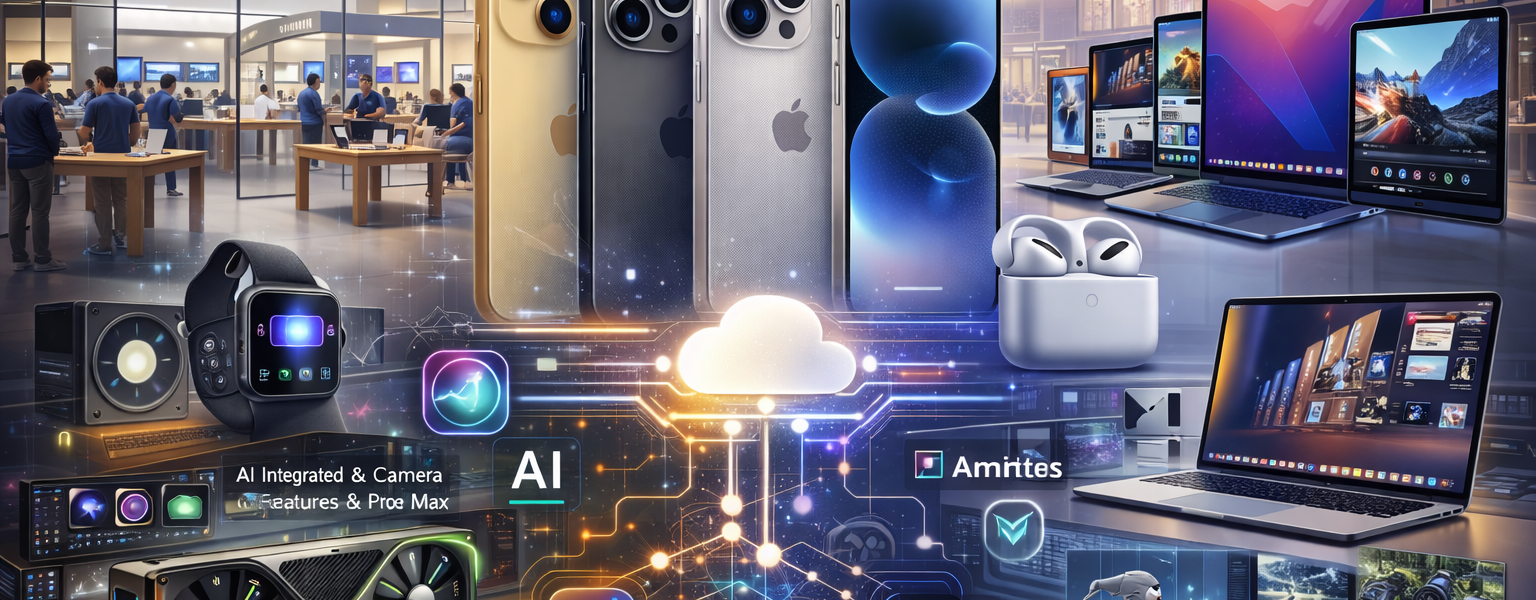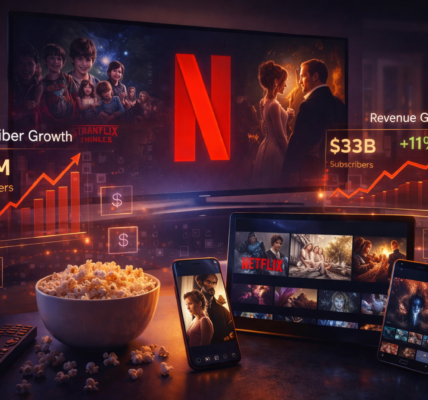Introduction – Apple’s New Chapter of Growth
For decades, Apple Inc. has been a symbol of premium technology, innovation, and brand loyalty. Known for its sleek designs, cutting-edge hardware, and intuitive software, Apple set the gold standard for consumer electronics. But in 2025, the company is making a strategic shift—broadening its definition of value.
Apple now focuses on three major growth pillars:
- Delivering affordable innovation without compromising quality.
- Expanding a services-driven ecosystem that keeps users engaged daily.
- Reinventing retail and customer experience to deepen brand loyalty.
In other words, Apple is no longer just selling devices—it is building a complete lifestyle ecosystem powered by AI, services, and seamless omnichannel retail.
Financial Strength in Q3 FY2025
Apple’s latest earnings underline the success of its evolving strategy. In Q3 FY2025, the company posted:
- Revenue: $94.0 billion (+10% year-over-year)
- Net Profit: $23.4 billion ($1.57 per share)
- iPhone Sales: $44.6 billion (nearly 47% of total revenue)
- Services Revenue: $27.4 billion (record high)
These results beat analyst expectations across all major categories, demonstrating the resilience of Apple’s business model even amid global economic uncertainties.
The iPhone remains Apple’s revenue engine, but the company’s services division—including App Store, iCloud, Apple Music, Apple TV+, and subscription bundles—is becoming an equally important growth driver.
Apple’s Strategic Retail Model
Unlike most tech companies, Apple operates a controlled, end-to-end retail ecosystem. This strategy blends:
- Iconic physical Apple Stores that act as both sales hubs and brand experience centers.
- Genius Bar services providing in-person technical support.
- Seamless online and mobile app retail experiences for purchasing, repairs, and upgrades.
This omnichannel approach ensures that whether customers engage in person, on their iPhones, or via Apple.com, they get the same level of brand consistency and service excellence.
Apple’s retail philosophy is built around three core values:
- Customer Experience: Every interaction—whether sales or support—is designed to be frictionless.
- Brand Control: Apple manages every touchpoint directly, ensuring consistent messaging and quality.
- Community Building: Stores double as training and learning centers through workshops and Today at Apple sessions.
AI and Future Technology Investments
Apple’s next frontier is artificial intelligence. While companies like Microsoft and Google have led early AI conversations, Apple is quietly laying the foundation for AI-powered consumer experiences.
Recent developments include:
- CEO Tim Cook confirming Apple is open to acquiring AI startups.
- Integrating AI into camera systems, Siri, and predictive device optimization.
- Exploring AI-assisted health monitoring in Apple Watch and other wearables.
- A rumored Apple GPT project for enhanced personal assistant capabilities.
On top of this, Apple announced a $100 billion investment in U.S. manufacturing—a move aimed at:
- Reducing dependency on overseas production.
- Mitigating tariff-related costs.
- Strengthening supply chain resilience.
Why Apple Stands Out in Tech & Retail
Apple’s competitive edge lies in how it combines technology, retail, and services into one integrated ecosystem. Key strengths include:
- Strong Core Products – iPhone, Mac, iPad, and wearables dominate their categories.
- Retail & Support Excellence – Controlled brand experience builds trust and loyalty.
- Powerful Digital Ecosystem – Recurring revenue from App Store, iCloud, and subscriptions.
- Forward-Looking Investments – AI integration and domestic manufacturing prepare Apple for future demands.
By aligning hardware sales with digital services and customer experience, Apple has created a revenue model with stability and growth potential.
Part 6: Risks and Strategic Challenges
No tech leader is without challenges. For Apple, key risks in 2025 include:
- Tariffs and Manufacturing Costs – Recent quarters saw $800 million in extra costs from tariffs, with projections of $1.1 billion next quarter.
- AI Competition – Rivals like Microsoft and Google are ahead in deploying large-scale AI applications.
- Stock Performance – Despite strong earnings, Apple shares are down ~17% in 2025 due to macroeconomic concerns.
- Regulatory Pressure – Ongoing antitrust cases and disputes over App Store fees could impact its services revenue.
Addressing these risks will require strategic agility and careful communication with both regulators and investors.
The Bigger Vision – Tech for Everyone
Apple’s evolving message is clear: “Value” is not about low cost—it’s about delivering premium quality at a justifiable price point. Through AI innovation, scalable services, and retail excellence, Apple is making its technology more accessible and integrated into everyday life.
The company’s omnichannel retail strategy—blending in-store experiences with digital platforms—sets the standard for consumer tech engagement. Paired with a push toward domestic manufacturing and AI-powered personalization, Apple is reshaping what leadership means in the technology industry.
Looking Ahead
Apple’s success over the next 3–5 years will depend on:
- Sustaining iPhone and services momentum.
- Scaling AI innovation across devices and platforms.
- Managing supply chain efficiency amid tariffs and manufacturing shifts.
- Navigating global regulatory pressures while keeping growth intact.
If Apple executes effectively, it will not just maintain its market dominance—it will define the next generation of retail and technology leadership.





















